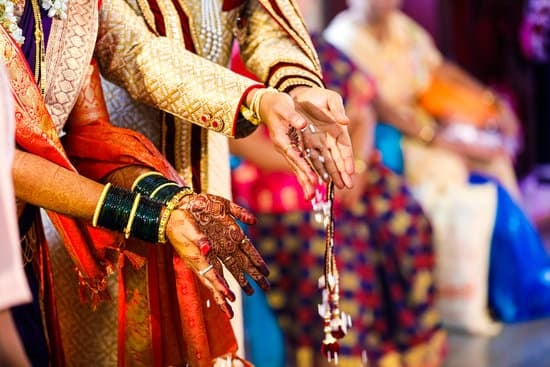Is it tacky to have a wedding ceremony without reception? In recent years, there has been a growing trend of couples opting to forgo the traditional post-ceremony celebration in favor of a simple and intimate wedding ceremony. The decision to skip the reception can be influenced by various factors, including financial considerations, personal beliefs, and practical logistics. However, this choice has raised questions about etiquette, guest experience, and cultural expectations surrounding weddings.
Wedding ceremonies and receptions hold significant cultural and traditional symbolism in many societies. The ritual of exchanging vows and rings in front of loved ones is often followed by a joyous gathering to celebrate the newlyweds.
This longstanding tradition symbolizes the union of families and serves as an opportunity for guests to share in the couple’s joy. However, as societal norms evolve and individual priorities shift, some couples are reevaluating the necessity of hosting a reception after their wedding ceremony.
In this article, we will explore both sides of the debate regarding having just a wedding ceremony without a reception. We will delve into the reasons why some couples are choosing this option as well as the potential downsides and etiquette implications it presents. Additionally, we will examine the cultural and regional variations in wedding traditions that may shape perspectives on this trend.
Finally, we will provide practical tips for couples considering this option and gather insights from guests who have attended weddings without receptions. Ultimately, our goal is to encourage thoughtful consideration of different choices in wedding planning while respecting individuals’ values and preferences.
The Case for Having Just a Wedding Ceremony
Practical and Financial Considerations
For some couples, the cost of hosting a traditional wedding reception can be prohibitively expensive. This may be due to budget constraints or simply a desire to allocate their resources elsewhere, such as towards a down payment on a home or funding for future travel. Additionally, the logistical challenges of planning and executing a reception, including securing a venue, catering, and entertainment, may also factor into this decision.
Personal Preferences and Beliefs
On the other hand, some couples may opt for just a wedding ceremony because they prefer an intimate and meaningful exchange of vows with close family and friends. They may value the sacredness of the ceremony itself over the festivities that typically follow. Others may have personal or cultural beliefs that lead them to prioritize the solemnization of their marriage over hosting a more elaborate celebration.
It Is Important
for couples considering this option to carefully weigh their own priorities, as well as considerate ways in which they can communicate their decision respectfully to their loved ones. Ultimately, the most essential aspect of any wedding celebration should be honoring the union of two individuals in the manner that aligns best with their values and vision for their special day.
The Case Against Having Just a Wedding Ceremony
While some couples may choose to have just a wedding ceremony for practical or personal reasons, there are potential downsides and etiquette implications to consider. One of the main considerations is the impact on guests and their experience. Without a reception, guests may feel that they are not fully included in the celebration and miss out on the opportunity to socialize and connect with the couple and other attendees.
From a societal and cultural perspective, there are also expectations surrounding weddings and receptions. In many cultures, weddings are seen as a time for family and friends to come together in celebration, with the reception being an integral part of this tradition. Not having a reception could potentially be viewed as breaking from these cultural norms and may lead to misunderstandings among guests.
In terms of etiquette, not having a reception can create uncertainty for guests who may be unsure about how to appropriately celebrate the occasion or what is expected of them. This lack of clarity can lead to discomfort or confusion among attendees, potentially overshadowing what should be a joyous occasion.
| Consideration | Implication |
|---|---|
| Impact on Guests | Guests may feel excluded from the full celebration and miss out on socializing opportunities. |
| Societal & Cultural Expectations | Not having a reception could be viewed as breaking from cultural norms, leading to misunderstandings among guests. |
| Etiquette | Lack of clarity about how to appropriately celebrate could lead to discomfort or confusion among attendees. |
Etiquette and Protocol
When it comes to wedding ceremonies and receptions, there are certain etiquette and protocol considerations that couples should take into account. This section explores the traditional expectations surrounding wedding celebrations and how modern trends have influenced these norms.
Traditional Etiquette
Traditionally, weddings are seen as a celebration not only of the love between the couple but also as a way to honor their commitment in the presence of family and friends. The reception that follows the ceremony is often considered an opportunity for guests to share in the joy of the newlyweds and to offer their best wishes for their future together. It also provides a chance for the couple to personally thank their guests for attending.
At receptions, guests expect to enjoy a meal, socialize with other attendees, and participate in traditions such as toasts, first dances, and cake-cutting. Not having a reception may be seen as breaking from these traditions and could potentially be viewed as disrespectful or dismissive of the guests’ role in celebrating the couple’s union.
Modern Trends
In recent years, there has been a shift towards more intimate and cost-effective wedding ceremonies without receptions. Some couples prioritize simplicity and want their focus to be solely on the act of getting married rather than on hosting a large celebration. Others may have constraints such as limited budgets or time constraints that make having a reception impractical.
Additionally, some couples may simply prefer non-traditional approaches to their weddings out of personal beliefs or experiences. They may feel that traditional wedding receptions do not align with their values or desired atmosphere for celebrating their marriage. While modern trends have certainly broadened options for wedding celebrations, it’s essential for couples to consider how this choice might impact their guests’ experience and expectations.
Cultural and Regional Considerations
When it comes to wedding ceremonies and receptions, cultural and regional differences play a significant role in shaping the expectations and norms surrounding these events. In some cultures, the wedding ceremony is the primary focus and may be a more intimate affair, while in others, the reception is equally important and often involves elaborate celebrations with large groups of family and friends.
For example, in some parts of India, weddings are multi-day events with various rituals and ceremonies, each carrying its own significance. The reception may or may not be a part of these traditions. Similarly, in parts of Europe, particularly in countries like Italy and Greece, wedding receptions are extravagant affairs with a strong focus on food, music, and dancing.
In certain cultures and regions, the decision to have just a wedding ceremony without a reception may raise eyebrows or be perceived as unconventional. However, it is essential to recognize that every culture has its unique practices and beliefs when it comes to weddings.
Another prominent factor to consider is the influence of religion on wedding customs. For instance, in some Christian traditions, the marriage ceremony takes precedent over the reception as it is considered a sacred sacrament. On the other hand, other religious traditions may place greater emphasis on communal celebrations that involve feasting and merriment as part of the marriage ritual.
Understanding how cultural norms influence wedding celebrations can help couples navigate their decisions thoughtfully while acknowledging and respecting different traditions.
| Cultural Considerations | Regional Differences |
|---|---|
| Influence of Religion on Wedding Customs | Multiday Events in Different Cultures |
| Unique Practices in Various Cultures | Wedding Receptions across Europe |
Practical Tips for Couples Considering This Option
When considering the option of having a wedding ceremony without a reception, there are several practical tips that can help couples navigate this decision. While this choice may not be traditional, it is important for couples to carefully consider their reasons for opting for a ceremony-only celebration and how to communicate this choice to their guests. Here are some practical tips for couples considering this option:
- Consider your reasons: Before deciding to have just a wedding ceremony, take the time to evaluate your reasons for doing so. Financial constraints, personal preferences, or a desire for an intimate ceremony are all valid reasons for choosing this option.
- Communicate clearly: If you decide not to have a reception, it’s important to communicate this clearly to your guests. Consider including a note in your wedding invitations or creating a wedding website where you can explain your decision and offer alternative ways for guests to celebrate with you.
- Explore alternative celebrations: Even without a traditional reception, there are still plenty of ways to celebrate with loved ones. Consider hosting a brunch or dinner the day after the wedding, organizing a casual gathering at a local park, or arranging small get-togethers with different groups of friends and family.
Ultimately, the key is to focus on what is meaningful and authentic to you as a couple while also being respectful of your guests’ expectations and experiences. This approach can help ensure that your decision feels true to who you are as individuals and as a couple while also fostering understanding among your loved ones.
Guest Perspective
Attending a wedding ceremony without a reception can be a unique experience for guests, and it often depends on individual preferences and cultural norms. Here are some perspectives from guests who have been in this situation:
- Intimate and Meaningful: Some guests appreciate the simplicity and intimacy of a wedding ceremony without a reception. They find that the focus is solely on the couple’s vows and the significance of the union, without distractions or elaborate festivities.
- Disappointment and Expectations: On the other hand, some guests may feel let down or disappointed when there is no reception following a wedding ceremony. Many people attend weddings expecting to socialize, enjoy a meal, and celebrate with the couple. Not having these elements can sometimes leave guests feeling unsatisfied.
- Understanding Cultural Differences: For guests who come from different cultural backgrounds, attending a wedding ceremony without a reception can be an eye-opening experience. It provides insight into how different cultures approach weddings and celebrations, highlighting the diversity of traditions around the world.
These varying perspectives demonstrate that there is no one-size-fits-all answer to whether it is tacky to have a wedding ceremony without a reception. Ultimately, it comes down to personal preferences, cultural expectations, and individual circumstances. Couples should carefully consider how their choice will impact their guests’ experiences before making this decision. Communication with guests about their plans can also help manage expectations and ensure that everyone feels included in the celebration of their special day.
Conclusion
In conclusion, the decision to have a wedding ceremony without a reception is a personal one that should be based on the values and preferences of the couple. While some may view it as tacky, it’s important to consider the practical and financial considerations that lead to this choice.
For some couples, prioritizing the ceremony over the reception allows them to focus on the significance of their commitment without being burdened by the cost and logistics of a traditional reception.
Ultimately, it’s essential for couples to communicate their decision to their guests in a thoughtful and respectful manner. Providing alternative ways for loved ones to celebrate and share in their special day can help mitigate any potential disappointment or confusion. It’s also worth considering how different cultures and regions approach wedding celebrations, recognizing that there is no one-size-fits-all approach to this meaningful event.
As attitudes towards weddings continue to evolve, it’s crucial for individuals to approach different choices in wedding planning with an open mind. Whether it’s having just a ceremony or opting for a non-traditional reception, what matters most is that the couple feels their celebration reflects their unique love story and brings joy to all who are involved. Ultimately, every couple should feel empowered to make decisions about their wedding day that honor their values and relationship.
Frequently Asked Questions
Is It Rude to Attend Wedding Ceremony but Not Reception?
It can be considered rude to attend a wedding ceremony but not the reception. The couple has invited guests to witness their union and celebrate with them, so skipping the reception could be seen as disrespectful. If there are valid reasons for not attending the reception, it’s important to communicate that to the couple beforehand.
What Can I Do Instead of a Reception?
Instead of a traditional reception, couples can consider alternatives such as a cocktail party, brunch, or even a casual gathering at a local park or beach. Some couples opt for smaller, more intimate celebrations with their closest family and friends instead of a large and formal reception.
Is It OK to Just Have a Wedding Reception?
Yes, it is perfectly okay to just have a wedding reception without the ceremony. In cases where the couple has already gotten married in a private ceremony or at a courthouse, they may choose to host a celebration with family and friends. This allows them to still mark their marriage with loved ones without having to reenact the official ceremony.

I have been involved in marriages for over 20 years helping couples and singles understand more about them.





